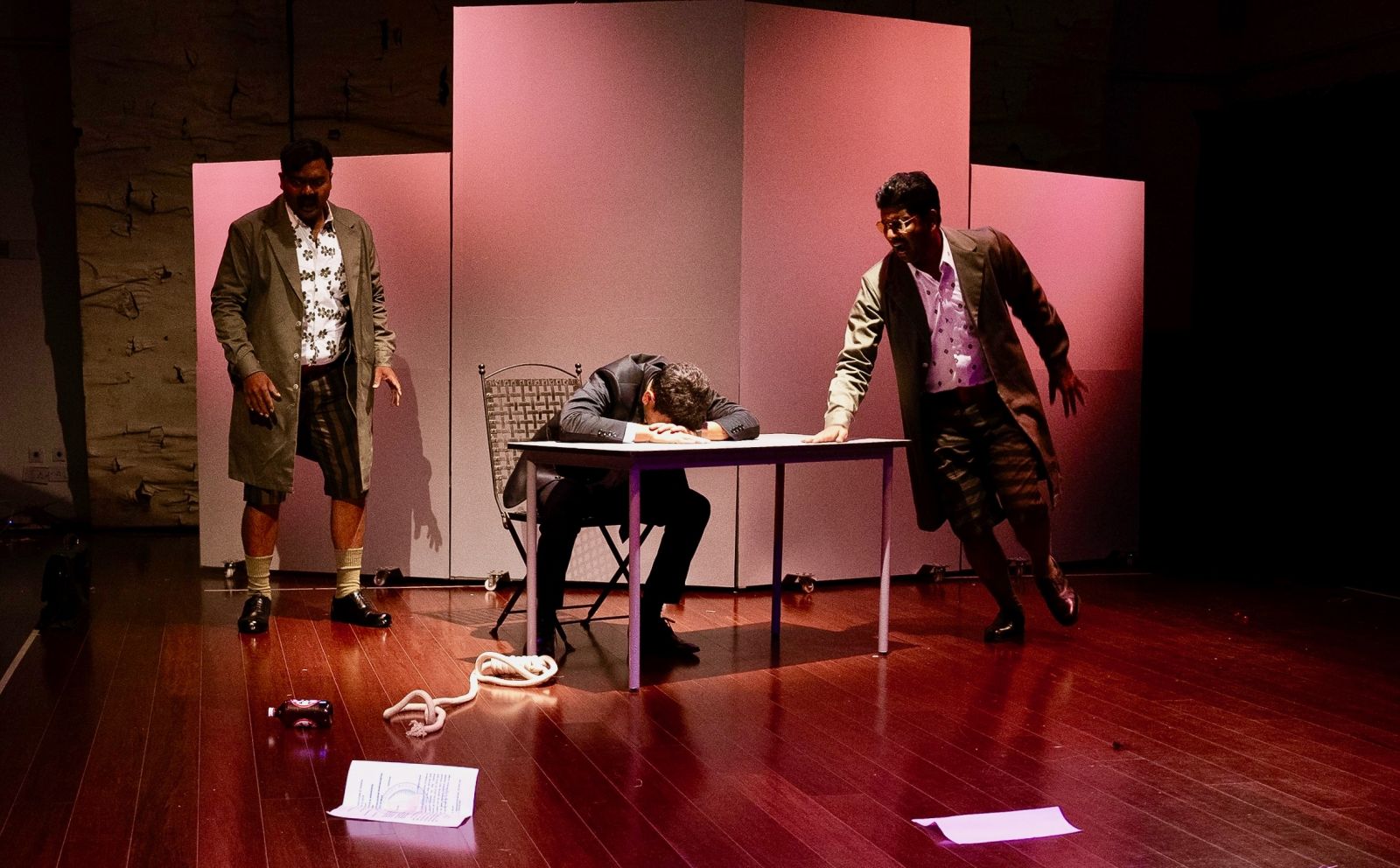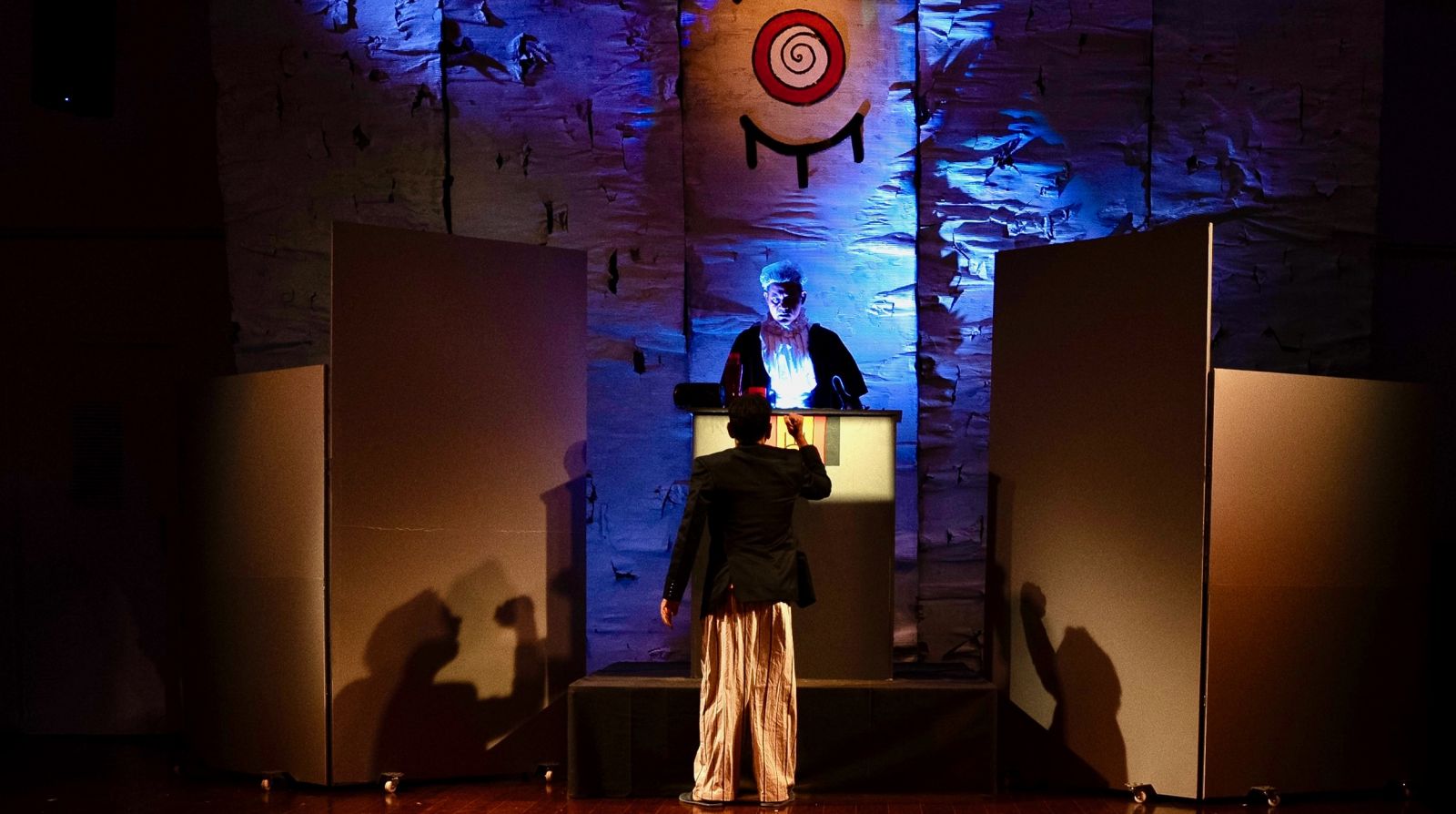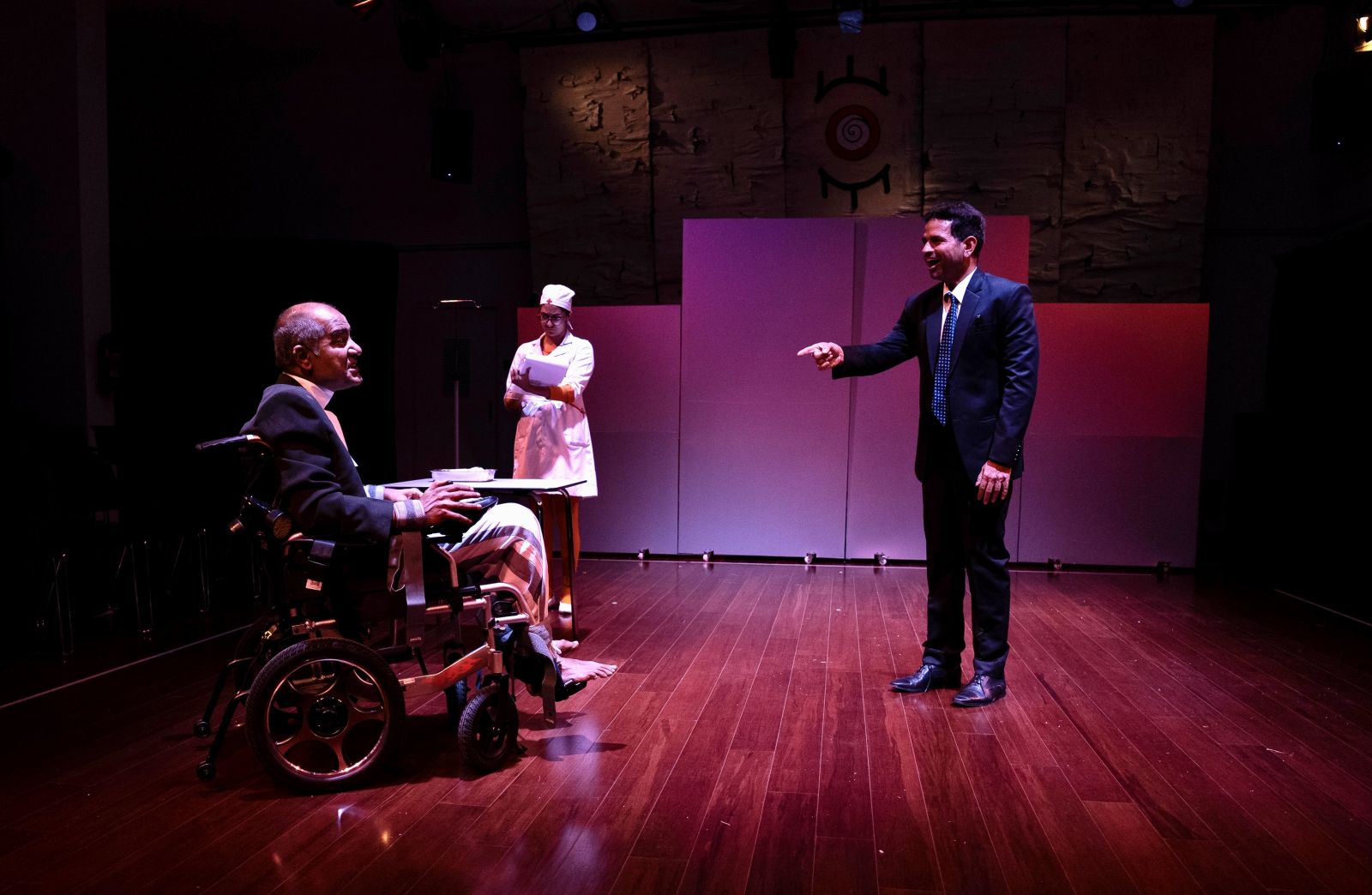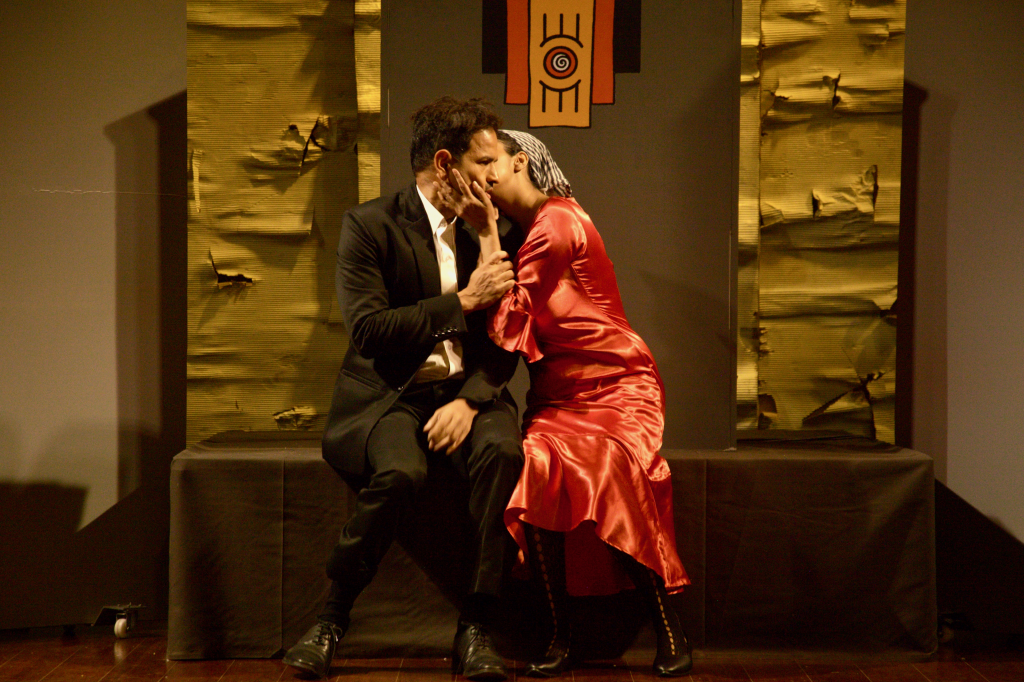
Blog

The play Innocence, photographed by Mythili P.
Writer and director Anmol Vellani’s Innocence, a play based on Kafka’s The Trial, suggests that India has become more Kafkaesque in recent times. He wonders, however, whether the demands of drama and the Indian setting have made it harder for the play to replicate the darkness, dread and disorientation that Kafka’s prose evokes.
Everyone who has read Franz Kafka’s The Trial would immediately recognise that it is the source text for Innocence, a play I wrote and directed with support from the Goethe-Institut, Bangalore. Even though Innocence is set in 21st-century India, the novel’s sequence of events, its key characters and their relationships and interactions, reappear in the play.
Writing a play based on material drawn from The Trial, but less than one-third its length, posed its own challenges. Many episodes had to be shortened or removed altogether; some characters had to be omitted. Sometimes the demands of drama forced my hand in other ways. I found the need to merge many characters into one, invent the odd scene or interplay between the characters, place material from one scene in the novel in a different scene in the play, and so on. But despite these changes, the play stays close to the central narrative of the novel.
 The play Innocence, photographed by Mythili P.
The play Innocence, photographed by Mythili P.
It is one thing to respect what Kafka describes in The Trial and quite another thing to capture what the novel evokes. When I first read The Trial, I pictured a grim, grimy, claustrophobic and black-and-white world. But who can imagine an uncoloured India? The play perforce replaced the greyness of the novel with the sensorial vibrancy of this country, while striving to retain the novel’s unnerving and threatening mood through other means, like an eerie soundscape and fractured lighting.
I chose to write the play as a black comedy, and a friend, who is himself a theatre director and actor, found it 'outrageously funny'. For that very reason, though, he worried that the play, when performed, may not evoke the dread that the novel does. This is a fair point.
I settled on black comedy because it is a theatre idiom that, like Kafka’s novels and short stories, produces discordance between style and content. Kafka’s unembellished prose invites us to treat the absurd and bizarre events it depicts as everyday occurrences. Similarly, characters in a black comedy act as though they are unaware of the ludicrous nature of the situations they find themselves in. Instead, they treat what they are experiencing, no matter how strange, as normal and perfectly natural.
The burden of evoking the dread and terror of the novel, therefore, fell on the shoulders of the actor playing the protagonist. He must be convincing as a man who is confident and indignant at the outset, but grows gradually confused and terrified, and finally descends into apathy and despair. Only then, perhaps, might spectators be less inclined to pointedly say of Innocence: "Very funny. Very relevant. But is this Kafka?"
 The play Innocence, photographed by Mythili P.
The play Innocence, photographed by Mythili P.
Audiences at the premiere run of Innocence did note the play’s relevance to contemporary India. Although I read The Trial in the last century and could picture bringing it to life on stage, I didn’t feel a strong urge to write the script until 2017, when I became acutely conscious that India was entering Kafka territory in various disconcerting and unprecedented ways.
For instance, in 2017, a ‘scheme’ apparently introduced to ensure transparency in political funding may have actually aimed to do exactly the opposite. In 2019, the then Chief Justice of India headed a special sitting of a bench which cleared the CJI of the allegations of sexual misconduct levelled against him.
There is a difference, however, between what could be construed as Kafkaesque and what directly invokes Kafka’s fiction. When the Right to Information Act is diluted repeatedly through amendments and other measures to shield the actions of governing agencies from public scrutiny, how can one not be reminded of characters in Kafka’s novels, who are rendered powerless by an impervious system which controls their lives? And when citizens of this country are taken into custody without being informed of the grounds for their arrest, how can one not be reminded of the first chapter of The Trial, where the protagonist is informed that he is under arrest, although evidence to prove his guilt has still to be assembled?
At times, I felt less like I was writing an adaptation of The Trial and more like I was mediating a conversation between the novel and the emerging India of the 21st-century. The novel’s meaning expanded as I began to read unfolding events into its pages. Simultaneously, certain disturbing executive and legislative acts of the kind that had not been imagined in the novel, found their way into Innocence, fitting naturally into the play’s narrative.
 The play Innocence, photographed by Mythili P.
The play Innocence, photographed by Mythili P.
I had to be careful. The characters and situations that Kafka describes are both familiar and strange, which is at least partly why the world he depicts seduces as well as alienates — disorienting not only the characters in his stories, but also the readers of his stories.
For the play to recreate the same effect, a familiar strangeness that borrows from our waking life and our dream life in equal measure, I had to walk a tightrope between Kafka’s fiction and contemporary India. The latter had to appear in Innocence glancingly rather than in all its particularity and rich detail. Had the play chronicled a very familiar India, it could legitimately provoke that challenging question again: But is this Kafka?
Published in cooperation with Goethe-Institut Bangalore.
Anmol Vellani is a theatre director, writer, institution builder, curator, teacher and actor trainer. His writing and talks—on arts entrepreneurship, the creative economy, cultural policy, the role of grant-making foundations, culture and development, arts collaboration and the performing arts, for example—have reflected on the insights he has gleaned from his long engagement with the arts and philanthropy. Anmol is based in Bangalore and works mainly in India and Southeast Asia.